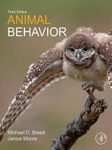![Plant Virology Plant Virology]()
Click to have a closer look
About this book
Contents
Customer reviews
Biography
Related titles
About this book
The seminal text Plant Virology is now in its fifth edition. It has been 10 years since the publication of the fourth edition, during which there has been an explosion of conceptual and factual advances. The fifth edition of Plant Virology updates and revises many details of the previous edition while retaining the important earlier results that constitute the field's conceptual foundation. Revamped art, along with fully updated references and increased focus on molecular biology, transgenic resistance, aphid transmission, and new, cutting-edge topics, bring Plant Virology up to date and maintain its value as an essential reference for researchers and students in the field. Features: thumbnail sketches of each genera and family groups; genome maps of all genera for which they are known; genetic engineered resistance strategies for virus disease control; latest understanding of virus interactions with plants, including gene silencing; interactions between viruses and insect, fungal, and nematode vectors; and over 300 full-color illustrations.
Contents
Section I Introduction
Chapter 1: Introduction
Chapter 2: Nomenclature and Classification of plant viruses
Chapter 3: Structure and assembly
Chapter 4: Symptoms and host range
Chapter 5: Agents resembling or altering virus diseases
Section II Virus-Plant-Vector; Molecular mechanisms and interactions
Chapter 6: Genome composition, organization and gene expression
Chapter 7 Replication of plant viruses
Chapter 8 Origins and Evolution of Plant Viruses
Chapter 9 Virus-plant interactions: RNA silencing
Chapter 10: Movement of viruses within plants
Chapter 11 Virus-plant interactions in non-permissive and permissive hosts
Chapter 12 Plant to plant movement
Section III Applied aspects
Chapter 13 Assay, detection, and diagnosis and diagnosis of plant viruses
Chapter 14 Ecology, epidemiology and control of plant viruses
Chapter 15 Plant viruses and technology
Section IV Plant virus viromics
Chapter 16 Plant virus viromics: involvement of genomes of three organisms - virus, host, vector
Appendix A Profiles of Families and Genera of Plant Viruses
Appendix B Plant Virus biological properties
Appendix C Plant virus genomes
Appendix D Plant virus acronyms
Customer Reviews
Biography
Roger Hull graduated in Botany from Cambridge University in 1960, and subsequently studied plant virus epidemiology at London University's Wye College, gaining a PhD in 1964. He lectured on agricultural botany there between 1960 and 1965. He was seconded to Makerere University in Kampala, Uganda in 1964 where he taught, and learnt tropical agricultural botany and studied the epidemiology of groundnut rosette disease. By watching aphids land on groundnut plants he gained an understanding of the edge effect of spread of virus into the field. In 1965 Roger Hull joined Roy Markham at the ARC Virus Research Unit in Cambridge, UK where he worked on biophysical and biochemical characterization of a range of viruses, especially Alfalfa mosaic virus. This work continued when he moved to the John Innes Institute, Norwich with Roy Markham in 1968. There Dr Hull became a project leader and deputy head of the Virus Research Department. In 1974 he spent a sabbatical year with Bob Shepherd in the University of California, Davis where he worked on the characterization of cauliflower mosaic virus. There he was introduced to the early stages of molecular biology which changed the direction of his research. On returning to the John Innes Institute he applied a molecular biological approach to the study of cauliflower mosaic virus elucidating that it replicated by reverse transcription, the first plant virus being shown to do so. Involvement with the Rockefeller Rice Biotechnology Program reawakened his interest in tropical agricultural problems and he led a large group studying the viruses of the rice tungro disease complex. He also promoted the use of transgenic technology to the control of virus diseases and was in the forefront in discussing biosafety issues associated with this approach. Moving from rice to bananas (plantains) his group was among those who discovered that the genome of banana streak badnavirus was integrated into the host genome and in certain cultivars was activated to give episomal infection - another first for plant viruses. He retired at the statutory age in 1997. Dr Hull is an Honorary Professor at Peking and Fudan Universities, a Doctoris Honoris Causa at the University of Perpignan, France, and a Fellow of the American Phytopathological Society. He is an Emeritus Fellow at the John Innes Centre where he continued research on banana streak virus for five or more years after retirement. He has published over 225 peer-reviewed papers on plant virology, many reviews and four books including the previous edition of Plant Virology and Comparative Plant Virology. In retirement Roger Hull became involved in promoting the uptake of transgenic technology by developing countries as one approach to alleviating food insecurity. He is on the International faculty of e-learning diploma course training decision makers, mainly in developing countries, in plant biotechnology regulation. His other interests are gardening, bird watching, travelling and his children and grandchildren.


































